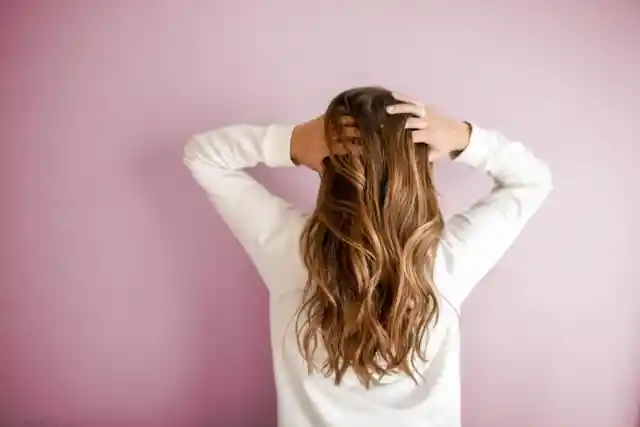The practice of oiling your hair is slowly gaining popularity. You may have seen it on TikTok or in season two of Netflix's "Bridgerton," but the tradition of hair oiling dates back thousands of years and is a staple in South Asian civilizations. Hair oiling is an old Ayurvedic procedure that involves pouring oil into the hair and scalp, kneading it in, and letting it on for a few hours or overnight before rinsing it away. Despite having a long history, the procedure is still extensively used today, and recently, interest in it has increased as a result of representations of the treatment in social media and the media. Many of your favorite beauty merchants even have products designed specifically for oiling hair. Read on to find out more about the hair-oiling practice, its advantages, and the different types of oils available.


Benefits of hair-oiling
A healthy balance of oils is necessary for our hair to maintain its health and happiness, much like our skin. The major objective of hair oiling is to hydrate your hair and replenish any vitamins or minerals it may have lost after frequent washing. Among the benefits of oiling your hair are: Can encourage hair growth Hair oiling has a number of physical and psychological advantages, including boosting blood flow (which can aid with hair strength and growth) and reducing stress. According to studies, red ginseng oil, peppermint oil, and rosemary oil in particular may promote hair development and stop hair loss. Even scalp massaging can result in thicker hair. Prevents breakage and damage to your hair You'll start to notice that your hair feels stronger and shines more if you make frequent oiling a habit. Applying the right oil to your hair will nourish and protect it straight down to the innermost layers of the shaft. You'll experience fewer breakage in addition to gaining a shield against harm from your blow dryer, flat iron, or other styling equipment. Helps improve scalp health Hair that is vibrant is usually healthy hair. And healthy hair usually means a healthy scalp. But that’s not always the case. Sometimes products (particularly those containing silicone) can make the hair appear healthy even if product buildup or other issues are preventing your scalp from functioning optimally. Enhances the look of split ends If you haven't been to your salon in a while, you can still hide those split ends. To help visibly tidy up your hair ends and to give a little moisture, apply some natural oils to them. But keep in mind that this is simply a short-term solution. Recent research suggests that consuming coconut oil, in particular, may benefit the scalp microbiome. It can offer the critical vitamins and amino acids your head needs to produce healthy hair. This might help to prevent dandruff. Can shield your hair from sunlight Straighteners and curling irons aren't the only sources of heat damage. To prevent your hair from becoming very dry or frizzy over time, it's crucial to protect it from the sun's rays. According to research, almond oil's hydrating qualities may build a barrier against the sun's UV radiation.How to oil your hair?
For damp hair: The best technique to treat damage and dryness is to apply hair oil to damp hair since slightly damp strands are by nature more absorbent. Consider it like this: A totally dry sponge takes longer to soak up a spilled liquid. However, a sponge that is just a little bit damp is ready for absorption and can typically soak up a spill more quickly. Your hair is the same way. Applying hair oil on damp hair • Use a detergent-free shampoo to clean. • Use a microfiber towel to dry off the extra moisture on your head. • Apply a few drops of oil to damp hair and work it through, paying special attention to the mid-shaft and ends. • Air-dry or blow-dry your hair. For dry hair: If you want to address particular surface or texture issues, like preventing frizziness or hiding damage, applying hair oil to dry hair is best. As the oil sits on the surface of your strands rather than soaking in, it instantly adds shine and smoothness. To apply hair oil on dry hair • Use your fingertips to massage your scalp with oil in a circular motion. • Put the oil that is still on your hands in your hair. • Overnight, cover with a towel or shower cap. • Shampoo your hair the next day while it is still dry. Thoroughly rinse. • Condition your hair.What oils to use?
Do a quick patch test to make sure you don't have an allergy to that kind of oil before you convert your entire head into an oil slick. Here is some information on just a handful of the several oils available. Coconut oil The most popular hair oil is virgin coconut oil, particularly in South Asia. Lauric acid is the main fatty acid in it. It binds to hair protein with a high affinity, which allows it to quickly penetrate the hair shaft. This makes it among the greatest oils for preventing protein loss from both damaged and healthy hair. Coconut oil is a good option for the majority of hair types because it can deep condition and offer natural protection. Almond oil If you have really greasy hair, almond oil can be a better choice because it is a lighter alternative to coconut oil. It has B, K, and E vitamins. Vitamin E can encourage hair development and lessen oxidative stress on your locks. Another important supplement for hair care is biotin, one of the B vitamins. Although there isn't much research on topically applied use, it might improve hair health and growth. Rosemary oil According to some studies, using rosemary oil promotes hair growth. The fungus and bacteria that might cause an unclean scalp can be eliminated by rosemary oil. So, if you've been experiencing hair loss, rosemary oil is definitely worth massaging onto your scalp.Sesame oil Sesame oil may be useful for hair that is prone to breakage, dandruff, frizz, or dryness. It is rich in minerals that can rejuvenate your scalp, including calcium, phosphorus, copper, iron, magnesium, and zinc. Additionally, sesame oil has antibacterial and antifungal qualities that could help with bothersome dandruff. Jaborandi oil The medicinal plant jaborandi is native to South America's tropical jungles and is widely utilized in shampoos and gels. More therapeutic than most oils, jaborandi may promote hair growth, moisturize a dry scalp, and delay the onset of gray hairs. It may also stop split ends and dandruff while moisturizing hair.